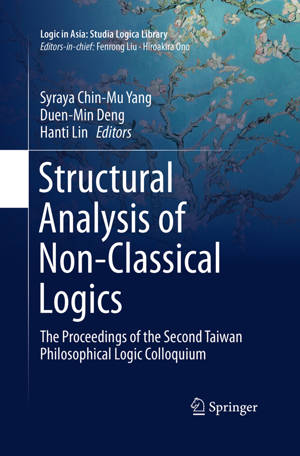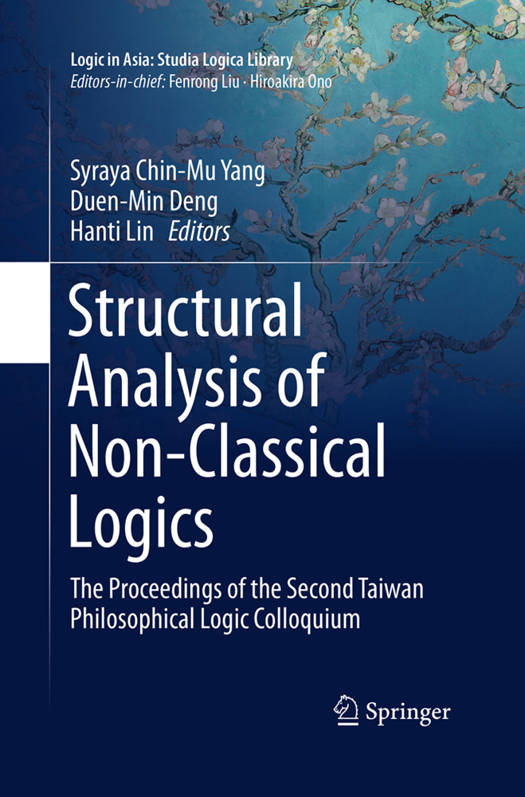
- Afhalen na 1 uur in een winkel met voorraad
- Gratis thuislevering in België vanaf € 30
- Ruim aanbod met 7 miljoen producten
- Afhalen na 1 uur in een winkel met voorraad
- Gratis thuislevering in België vanaf € 30
- Ruim aanbod met 7 miljoen producten
Zoeken
Structural Analysis of Non-Classical Logics
The Proceedings of the Second Taiwan Philosophical Logic Colloquium
€ 111,95
+ 223 punten
Omschrijving
This volume brings together a group of logic-minded philosophers and philosophically oriented logicians to address a diversity of topics on the structural analysis of non-classical logics. It mainly focuses on the construction of different types of models for various non-classical logics of current interest, including modal logics, epistemic logics, dynamic logics, and observational predicate logic. The book presents a wide range of applications of two well-known approaches in current research: (i) structural modeling of certain philosophical issues in the framework of non-classic logics, such as admissible models for modal logic, structural models for modal epistemology and for counterfactuals, and epistemological models for common knowledge and for public announcements; (ii) conceptual analysis of logical properties of, and formal semantics for, non-classical logics, such as sub-formula property, truthmaking, epistemic modality, behavioral strategies, speech acts and assertions. The structural analysis provided in this volume will appeal not only to graduate students and experts in non-classic logics, but also to readers from a wide range of disciplines, including computer science, cognitive science, linguistics, game theory and theory of action, to mention a few.
Specificaties
Betrokkenen
- Uitgeverij:
Inhoud
- Aantal bladzijden:
- 278
- Taal:
- Engels
- Reeks:
Eigenschappen
- Productcode (EAN):
- 9783662517123
- Verschijningsdatum:
- 23/08/2016
- Uitvoering:
- Paperback
- Formaat:
- Trade paperback (VS)
- Afmetingen:
- 156 mm x 234 mm
- Gewicht:
- 417 g

Alleen bij Standaard Boekhandel
+ 223 punten op je klantenkaart van Standaard Boekhandel
Beoordelingen
We publiceren alleen reviews die voldoen aan de voorwaarden voor reviews. Bekijk onze voorwaarden voor reviews.










